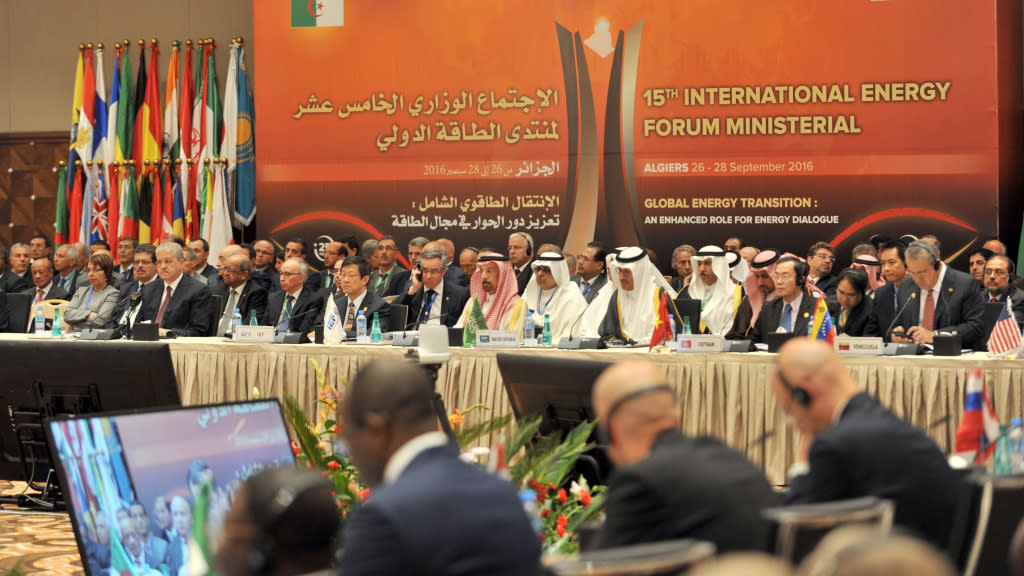For the first time since 2008, OPEC has agreed to slash oil production

In a surprising decision, OPEC got past its sometimes-bitter internal rivalries and agreed to cut oil production for the first time in eight years. The move, decided among OPEC ministers in Algiers, Algeria, was driven by an enormous fiscal threat that has reached an existential scale to some, such Venezuela and Nigeria.
In a decision led by a rapprochement between Saudi Arabia and Iran—OPEC’s main antagonists—the ministers decided to cut production by 750,000 barrels a day, down to 32.5 million barrels. In a market where price is decided on the margin, that volume is significant.
Oil prices immediately shot up on the news. The international benchmark Brent surged by more than 5% to $48.45 a barrel. US-traded West Texas Intermediate rose by 4.7% to $48.60 a barrel.
Now the OPEC ministers must meet in November and decide precisely who is to cut what amount.
The likelihood is that Saudi Arabia will shoulder most if not all of the cut, since it is the biggest producer and generally tries to be the statesman among the group. Iran, which is currently producing about 3.6 million barrels a day, is likely in fact to be permitted to increase its output to about 4 million barrels a day, near its level prior to the imposition of western sanctions in 2012 over its nuclear development program.
Nigeria and Libya, too, are likely to be permitted to increase production since they have both been riven by internal chaos that has driven down their ability to produce.
To the degree it actually takes hold, the decision will be welcome relief to all the OPEC member countries, which have all suffered huge fiscal crises because of a two-year-old plummet in prices driven by a supply glut.
In fact, the decision may call an end to an unofficial oil war declared by Saudi Arabia against US shale oil in June 2014. Saudi has been trying to drive US shale drillers out of the market in order to retain and build its own market share. But while American oil companies have suffered—with many driven out of the market and into bankruptcy, and US production has fallen by hundreds of thousands of barrels a day—they also by and large have held on. And now with oil prices likely to keep rising, the Americans will be able to get back into the game, too.

Sign up for the Quartz Daily Brief, our free daily newsletter with the world’s most important and interesting news.
More stories from Quartz:

